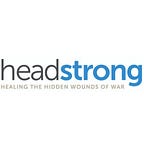“Facing Stigma” with Tim C.
I grew up in Brooklyn; eight kids in a two bedroom apartment in Sunset Park. My father was a cop and he’s one of seven brothers and sisters with all of the brothers going on to serve. I joined the Marine Corps because it was the best option for me at that time. I did two years of school and then went right to Guantanamo Bay. I was attached to minefield maintenance and mine detectors were my life. I like to say we were Cold War Marines because we were under Reagan in Guantanamo. At the time, It was the only active NATO minefield being maintained besides the one between South and North Korea. It was an interesting place to be in the early 80s. We were dealing with the minefield and everything attached to that, base security, and we were in a communist country so that in itself presented challenges. The way it worked was Guantanamo Bay was leased from the Cuban government and the stipulation of the lease is that both sides have to agree to break the lease. They wanted us out of there as soon as Castro took over but they couldn’t throw us out because of the way the “no expiration” lease was set-up. Everyone thinks of Guantanamo as a prisoner of war camp, but it was actually a holding facility starting with the “Muriel Boatlift” and during the AIDS outbreak as well. Guantanamo Bay was known as a holding facility because we were holding all of the AIDs patients that were getting thrown out of Cuba, Haiti, and Jamaica. They were being put on boats and sent adrift and then we’d find them and bring them in. Guantanamo was really the extent of my military career because I did four years in the Marine Corps before transitioning out and into the Army Reserve for a year. I struggled coming out of the military and tried to cope with alcohol and drugs. A lot of it was losing my identity in the military and coming out and trying to fit into corporate America. I was blessed that the guy who ran technology at the New York Stock Exchange was former military and he thought that if I could survive Parris Island, he could train me. I had a very rough time going from the military into that high finance environment and that was the hardest part of the transition.
The technology piece of the New York Stock Exchange wasn’t the problem; it was all of a sudden working on the floor of the exchange with 4,000 people in one of the most chaotic environments in the world. I went in there as a tech and wound up being a stockbroker before going on to lead the largest independent floor operation at the New York Stock Exchange. In 2001, I was a few blocks away when the towers got hit. I remember being in a meeting and hearing the boom when the first plane hit. The World Trade Center is about two blocks from the Stock Exchange so when we looked out of the curtain, it was just papers on fire coming down the block. We watched as both towers came down from inside our building. We were able to get all of our people together and got them out of the building and a group of us got on a tugboat heading to Brooklyn. I helped set up one of the largest relief efforts out of Brooklyn and then I worked the pile for a week. The following week I went back to the Exchange to help get it opened back up; however, that was the end of the Stock Exchange as I knew it. It really was the catalyst for everything becoming technology based and guys like myself were replaced by algorithms. After 30 years at the Exchange, I transitioned into everything from starting a real estate company to running for Congress and then four years ago I found out about American Corporate Partners (ACP). I thought it would be a great way to utilize my business background and all my relationships and put that to work for veterans. Being a veteran myself and remembering very clearly how hard it was to transition, I jumped on board to help build that out. In the time since I’ve been there, I’ve helped add 30 Fortune 500 companies, thousands of veterans, and we’re up 30% this year alone. I’m most proud though of really building the outreach program and getting more veterans into the program. Everybody needs meaningful employment. I believe that’s one of the keys to life and being able to be in a great mental space. To be able to provide them with a mentor who can talk to them, help translate their skills and provide some guidance after a veteran’s transition, that definitely helps in a profound way.”
